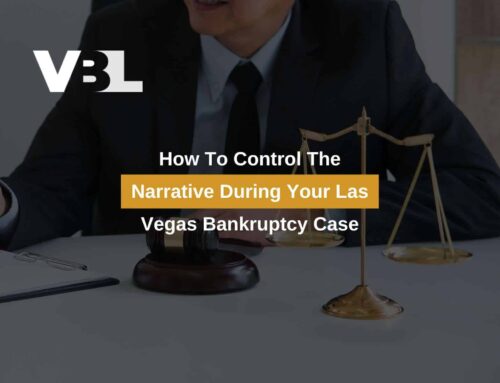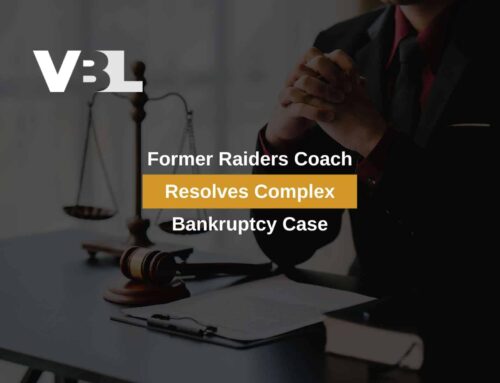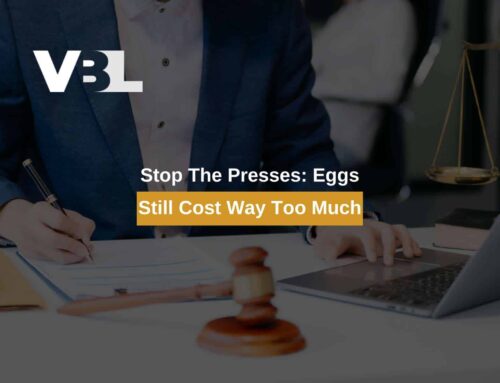Year In Review: Changing Your Nevada Estate Plan For 2023
Every day, life becomes more and more like an SNL skit. And while some world news is fodder for laughter, most of the rest of the news is about how increasingly difficult life is becoming. Yes, Kanye West impersonated Israeli Prime Minister Netanyahu using a fishbowl net and a bottle of Yoohoo, but groceries and gas still cost significantly more than they did this same time last year. Britney Spears may have finally been freed from her conservatorship and gotten married, but it’s still almost impossible for the average family to afford to buy a home. The Kardashians may have done whatever Kris Jenner planned for them this week, but we’re all expected to watch with a smile while they squander millions on extravagant expenditures and we wonder how we’re going to pay our bills this month. As difficult as life can seem in the present, it’s also still important to plan for the future. If you have children, any assets, or wishes about how your medical treatment will proceed and what will be done with your body after your death, it’s important that you create your own estate plan. Our estate planning lawyers can help you create an estate plan that makes your wishes clear for a fair price. To learn more, call to schedule your free consultation at 702-370-0155.

What Happens If I Never Create an Estate Plan?
If you don’t create an estate plan, when you pass away, you will have passed away “intestate.” Each state has its own laws regarding intestacy, or who receives the estate of someone who passes away without an estate plan. In Nevada, intestate succession usually first goes to a spouse and/or children, and then will extend further into the family tree if necessary. In some situations, this could even mean that the estate would eventually go to the state. Also, making an estate plan is the only way to leave any of your assets to a charitable organization.
Changes Throughout The Year
There are several life events that could have happened in your family throughout the year that necessitate a change (or creation) for your estate plan. One of the most common reasons that people change their estate plans is because they get married. Some people may not feel this is necessary because Nevada is a community property state. In community property states, spouses have equal rights to all income and assets (and debts) acquired during the marriage, with the exception of inheritance and gifts. However, including your spouse in your estate plan can make things simpler if you do predecease your spouse. You should also be clear about which assets you have the right to give away to people besides your spouse when you live in a community property state.
Another good reason to change your estate plan is if you or someone close to you introduced a new child to the family that you would like to include in your estate plan. Some people may list “all my children” in their estate plans to avoid having to make changes for each new member of a growing family. But naming specific heirs can make distributing your assets after your passing clearer. You may also want to start an educational trust or use another more specific instrument to prepare your new family member for the future.
Unfortunately, sometimes our loved ones develop medical conditions that will require long-term or lifelong care. This could be another reason to make changes to your estate plan. Under these circumstances, you may be able to create a special type of trust that will provide financial support for your loved one without disqualifying them from Medicaid and other government benefits.
Your Last Will and Testament – More Than Giving Away Your Worldly Possessions
Many people put off creating a will because they don’t realize it serves two important purposes besides distributing assets. The first is designating an executor for your estate. The second is naming a legal guardian for your children if you pass away without another living parent and before turning 18 years old.
The executor of an estate has several responsibilities to make sure that assets are distributed to heirs as per the testator’s wishes. That is why it is extremely important to discuss these responsibilities and assign them to someone who is trustworthy. You should also consider naming a second executor if your first executor can’t fulfill these duties for any reason. The executor will need to file your death certificate and will, along with any other important documents, with the court. The executor will essentially be responsible for guiding your estate through probate. The executor can also file the forms necessary to exempt your estate with a small estate affidavit, if applicable.
If you don’t have children, or your children are already adults, you don’t need to worry about naming a legal guardian for them in your will. If you do, and you don’t have an estate plan or haven’t named them in your estate plan, this issue should be resolved promptly. It is even more crucial to discuss the matter with the person you choose as your children’s legal guardian than for your executor. You can also consider choosing a secondary legal guardian if your first choice is unable to fulfill its duties should it become necessary.
Making Changes or Starting Over
Destroying your current will and creating an entirely new estate plan may seem like a massive undertaking. However, it is sometimes a simpler solution than making changes to your estate plan through codicils. According to NRS 133.120, a will can be destroyed in Nevada by burning it, tearing it, or physically destroying it in any other manner. A will can also be terminated by another will or a codicil. An attorney can help you decide if it would be preferable to start over with your estate plan or supplement your current estate plan with codicils and other documents. Call 702-370-0155 to schedule your time to speak with a member of our team today.
Avoiding Probate
Probate is costly, time-consuming, and stressful for your loved ones. But if you don’t reduce the size of your estate through gifts, trusts, and other methods, probate may be an unfortunate necessity for your assets to be distributed to your loved ones. However, an executor or relative can request to avoid the probate process by filing a small estate affidavit, also known as a Form UP-45 in Nevada. To qualify for a small estate affidavit, the decedent’s estate’s value must not exceed $25,000. For a small estate affidavit applicant must wait at least 40 days after the decedent’s passing before filing the form. All of the estate’s debts and liabilities must be paid off before qualifying for a small estate affidavit.
Let Our Nevada Law Team Help You with Your Estate Planning Needs
Life changes quickly, and you may need regular reviews and changes to your estate plan. At Las Vegas Bankruptcy Lawyers, our team makes doing that a realistic option through free consultations and affordable rates. Don’t wait until it is too late to create your estate plan. Get started today by calling to schedule your free consultation at 702-370-0155.

Las Vegas Bankruptcy Lawyers
LAS VEGAS
7251 W Lake Mead BLVD #300
Las Vegas, NV89128
Office: 702-879-2499
Email: [email protected]
HENDERSON
1489 W Warm Springs Rd. Ste 110
Henderson, NV 89014
Email: [email protected]
Additional Information at:
Phoenix Bankruptcy Lawyer
Phoenix DUI Lawyer
Chandler Bankruptcy Lawyer
Vegas Zero Down Bankruptcy Attorney
Gilbert Bankruptcy Lawyers
Arizona Zero Down DUI
AZ Bankruptcy Lawyer
















